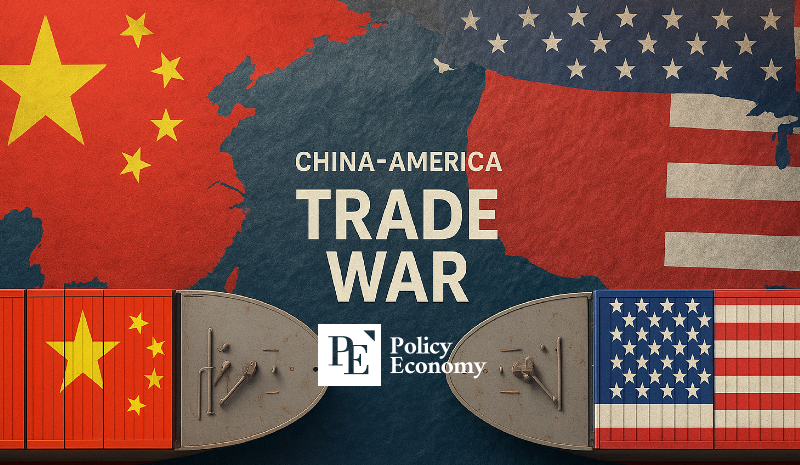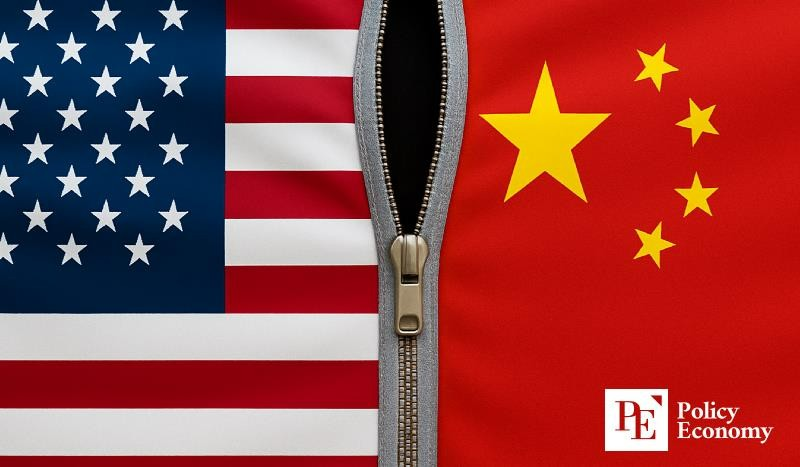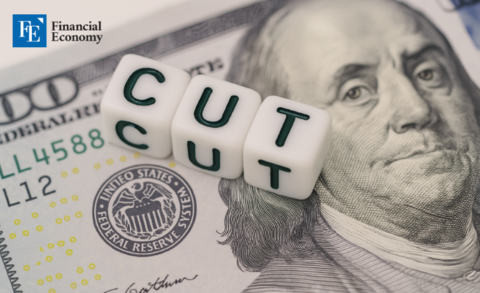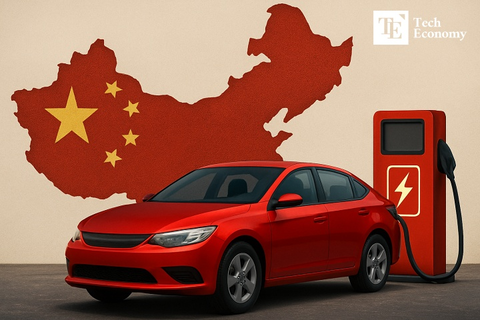Trump Met with Chinese Inflexibility on Trusted Tariffs — 'U.S.-China Trade War Deadlock Deepens'
Input
Modified
U.S.-China Trade Talks Remain Stalled Critical Minerals Dispute Heightens Tensions Breakthrough Unclear After 90-Day Tariff Truce

The fragile calm in the U.S.-China trade war appears to be unraveling once again, this time under the weight of diverging political wills, strategic resource maneuvering, and lingering mistrust. Just weeks after agreeing to a limited ceasefire, the two global powers find themselves locked in an intensifying deadlock, exacerbated by disputes over critical minerals and accusations of betrayal. As negotiations stall and rhetoric sharpens, the prospect of resolution drifts further out of reach—marking yet another phase of heightened tension in an already volatile economic confrontation.
Trump Calls Xi a “Tough Negotiator” — Signals Trade Talks with China Are Not Going Smoothly
With a 90-day tariff truce in place following last month’s high-level Geneva talks, the world had hoped for a temporary reprieve from the ongoing economic conflict between Washington and Beijing. But President Donald Trump’s tone has taken a sour turn—signaling that all is not well behind the scenes.
In a strikingly timed post on his social media platform Truth Social at 2:17 a.m. on June 4, Trump wrote, “I like President Xi. I’ve always liked him and always will. But he’s very tough and extremely difficult to negotiate with.” The unusual timing of the message—posted in the early hours of the morning—has been interpreted as a reflection of Trump’s late-night preoccupations and growing frustration with the status of U.S.-China trade talks.
The comment comes amid rising speculation about a possible direct phone call between Trump and Xi—an attempt to break the growing impasse. Observers note that Trump’s characterization of Xi as a difficult negotiator could be a preemptive strategy to set expectations low and rally support at home should talks fail to bear fruit.
The terms of the Geneva agreement had offered a brief sense of relief. Under the deal, the U.S. would impose 30% tariffs on Chinese imports, while China would reciprocate with 10% tariffs on U.S. goods—both measures temporarily frozen for 90 days to give negotiations room to breathe. Yet progress since then has been halting at best. Trump’s administration recently sent formal letters to all countries involved in trade talks with the U.S., demanding their best offers by June 4. Still, many analysts remain skeptical. Without substantial breakthroughs in U.S.-China negotiations, they warn, global markets could remain clouded by instability and uncertainty.

Critical Minerals Dispute Adds Complexity to U.S.-China Negotiations
A major source of contention—now threatening to derail the truce entirely—is China’s control over critical minerals. These resources, including rare earth elements and magnetic materials, are essential components in the manufacturing of automobiles, consumer electronics, and advanced military systems. Their strategic importance cannot be overstated, and both sides know it.
According to reporting by Politico, citing an anonymous figure close to the negotiations, the U.S. is under “enormous pressure” as China appears to be intentionally curbing exports of these critical minerals. “President Xi no longer seems very interested in exporting rare earth elements or magnets to the U.S.,” the source said. For the Trump administration, which is already managing fragile supply chains and trying to regain manufacturing independence, the move feels like a calculated squeeze.
China’s ability to weaponize its dominance over rare earth exports poses a direct challenge to the U.S.’s own attempts to contain Beijing’s rise in semiconductor and AI technology. While Washington had previously responded with export restrictions on key technologies—such as advanced chip-making tools—China’s retaliatory hold on mineral supplies appears to be placing the U.S. at a growing disadvantage in this economic tug-of-war.
President Trump, never one to downplay a perceived slight, made his grievances public. On April 30, he lambasted China’s actions, declaring, “The bad news is that China has completely violated our agreement.” His core complaint: despite the truce, China had not lifted export controls on rare earths as promised under the Geneva accord. Trump argued that the tariff relief he had offered helped China avoid a deeper economic and social crisis. Yet, in his view, that goodwill had not been reciprocated. “This is the thanks I get for being Mr. NICE GUY,” he said sarcastically.
His claims were echoed by Jamieson Greer of the U.S. Trade Representative’s office, who in a media interview on the same day, confirmed that “China continues to slow down and disrupt flows of critical minerals and rare earth magnets.” The coordinated messaging suggested a strategic pivot: from merely managing the truce to actively challenging China’s compliance.
China's Ministry of Commerce: “It’s the U.S. That Violated the Trade Deal”
China, however, is not backing down. The Chinese Ministry of Commerce has pushed back hard against the narrative coming from Washington, accusing the U.S. of being the true violator of the Geneva agreement. On June 2, the ministry released a formal statement, stating that “China has taken a responsible stance, earnestly, rigorously, and actively upholding the Geneva economic and trade agreement reached last month.” The statement then pivoted to accuse the United States of escalating tensions post-agreement.
Specifically, Beijing pointed to a series of provocative U.S. actions taken after the Geneva summit. These included the issuance of export control guidelines on AI chips, the suspension of sales of electronic design automation (EDA) software vital to semiconductor development, and even the cancellation of visas for Chinese students—actions China views as discriminatory and destabilizing.
“The U.S. is unilaterally stirring up endless new economic and trade frictions,” the ministry stated. “Yet instead of self-reflecting, it falsely accuses China of breaching the deal—an accusation seriously detached from reality.”
The statement also underscored the significance of the Geneva accord, describing it as a “hard-earned result” achieved through mutual respect and equality. In no uncertain terms, the Chinese government warned that if the U.S. continues to undermine Chinese interests, Beijing will respond with “firm and powerful measures” to defend its rights.
Perhaps most notably, China signaled its unwillingness to engage in further summit-level talks at this time. While the U.S. appears eager to resolve the matter through direct dialogue between leaders, China has dismissed the idea outright—making clear it sees no point in negotiations unless Washington is prepared to change its approach.





















